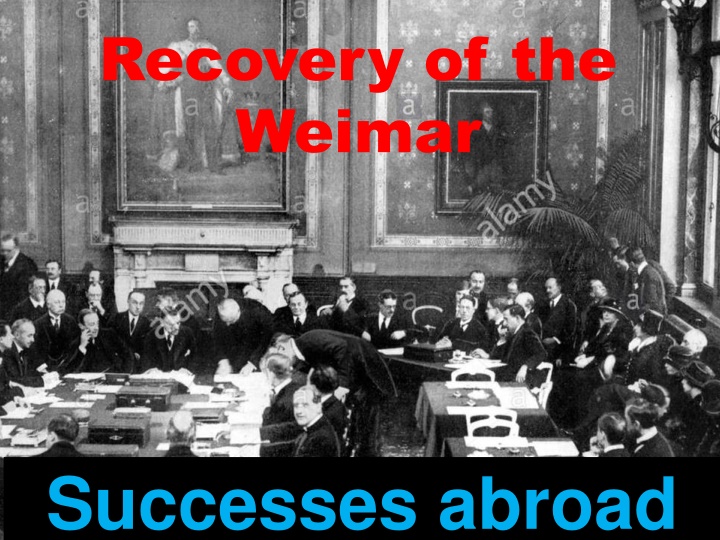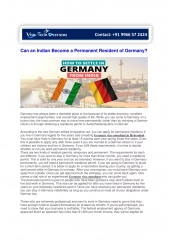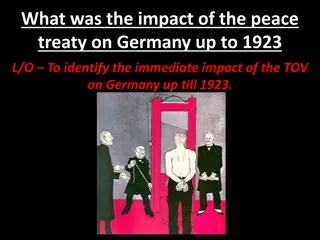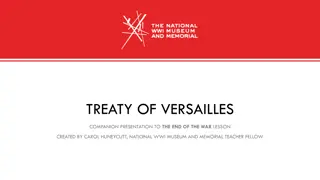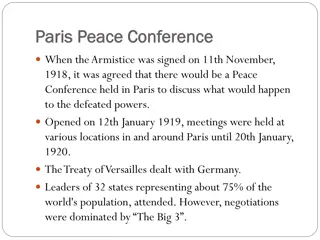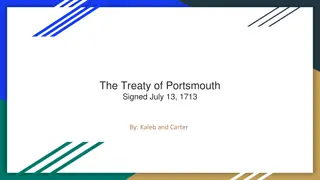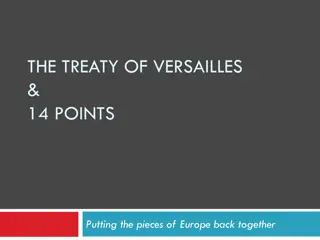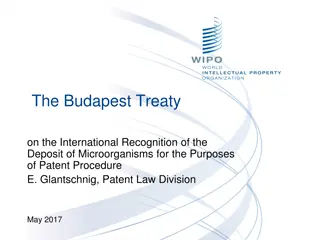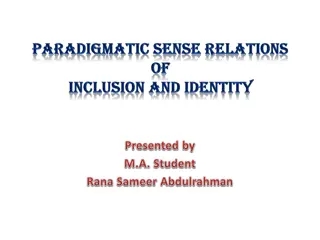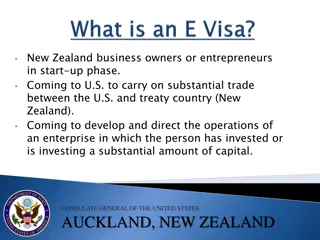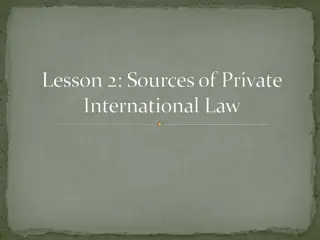The Successes of the Locarno Treaty and Germany's International Relations in the 1920s
The Locarno Treaty signed in 1925 marked a significant recovery for Weimar Germany's foreign relations. Germany, along with Britain, Belgium, France, and Italy, agreed to maintain existing borders and respect joint frontiers. This pact led to Germany's inclusion in the League of Nations, enhancing its international prestige and cooperation with European nations. Further successes followed, including the withdrawal of Allied troops and peaceful dispute resolutions through agreements like the Kellogg-Briand Pact.
Download Presentation

Please find below an Image/Link to download the presentation.
The content on the website is provided AS IS for your information and personal use only. It may not be sold, licensed, or shared on other websites without obtaining consent from the author.If you encounter any issues during the download, it is possible that the publisher has removed the file from their server.
You are allowed to download the files provided on this website for personal or commercial use, subject to the condition that they are used lawfully. All files are the property of their respective owners.
The content on the website is provided AS IS for your information and personal use only. It may not be sold, licensed, or shared on other websites without obtaining consent from the author.
E N D
Presentation Transcript
Recovery of the Weimar Successes abroad
The Locarno act In 1925 Germany signed the Locarno pact with Britain, Belgium, France and Italy. According to the agreement countries agreed to keep existing borders between Germany, Belgium and France.
Main Representatives Germany Gustav Stresemann France Aristide Briand Belgium mile Vandervelde Britain Austen Chamberlain Italy Benito Mussolini
Terms of the Treaty Belgium, France & Germany promised to respect their joint frontiers Ultimate cession of Alsace-Lorraine Demilitarization of the left bank of the Rhine Britain and Italy acted as the guarantors Germany allowed to enter the League of Nations In case of Germany's occupation of the demilitarized zone military action might be taken in response
The Locarno act This Pact marked Germany s return to the European international scene and began a period of co-operation between Germany, France, Britain
The League of Nations The League of Nations was established in 1920; it s purpose was to try and maintain peace Germany became a member of the League of Nations following the Locarno Pact This brought considerable prestige to Stresemann and helped Germany to negotiate the Young Plan
The Kellogg-Briand Pact In 1928 Germany signed the Kellogg- Briand Pact along with 64 other nations. It was agreed that they would keep their armies for self defence and solve all international disputes by peaceful means .
Further successes In 1925 France withdrew from the Ruhr In 1927 Allied troops withdrew from the west bank of the Rhine, five years before the original schedule of 1933
Exam question 5 By 1929 the Weimar Republic had overcome its early problems and become firmly established in Germany. To what extent do you agree with this interpretation?
